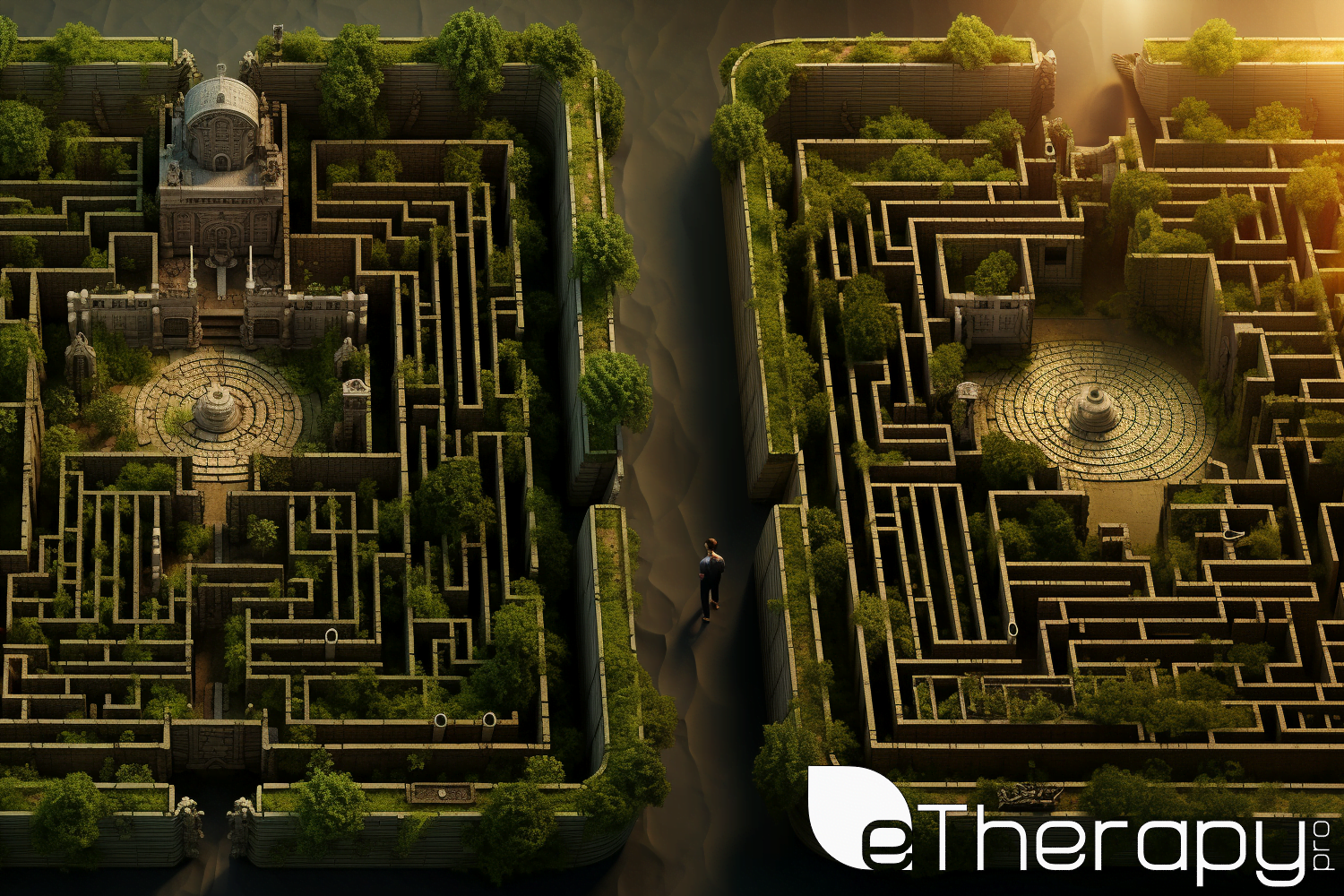 You might have heard it at a coffee shop, a colleague meticulously rearranging their desk and exclaiming, “I’m so OCD about this!” Yet, as casually as the term ‘OCD‘ slips into our daily conversations, it often paints a simplified picture of a complex mental health condition. It’s easy to mistake our quirky habits for compulsive tendencies. But when does a meticulous coffee-making routine or an obsession with symmetry hint at something deeper? This article seeks to delve into this gray area, aiming to differentiate between what’s truly OCD tendencies and what’s just a quirky habit we all occasionally have.
You might have heard it at a coffee shop, a colleague meticulously rearranging their desk and exclaiming, “I’m so OCD about this!” Yet, as casually as the term ‘OCD‘ slips into our daily conversations, it often paints a simplified picture of a complex mental health condition. It’s easy to mistake our quirky habits for compulsive tendencies. But when does a meticulous coffee-making routine or an obsession with symmetry hint at something deeper? This article seeks to delve into this gray area, aiming to differentiate between what’s truly OCD tendencies and what’s just a quirky habit we all occasionally have.
Habit vs. Compulsion: What’s the Real Difference?
We all have little routines, actions, or thoughts that are repeated often enough to become second nature. But there’s a vast difference between a harmless ritual and a compulsive behavior. Distinguishing between the two can be a vital step in understanding ourselves better and, if needed, seeking timely intervention.
Defining Habits
Habits are repetitive behaviors ingrained into our daily lives. They’re the choices we make subconsciously, shaped over time by repeated actions. They could be as simple as automatically reaching for the toothbrush first thing in the morning or taking the same route to work each day.
Habit is a cable; we weave a thread of it each day, and at last we cannot break it. – Horace Mann
This quotation suggests that habits, though strong and often consistent, are essentially neutral and can be both positive or negative.
Understanding Compulsion
Venturing into the realm of compulsions, things get a bit murkier. Unlike habits, compulsions stem from a deeper, often anxious need to perform specific tasks or rituals. These actions aren’t just routines we’re used to; they’re driven by a persistent, inner urge. Failing to perform a compulsion might lead to increasing levels of discomfort or distress. It’s a behavior often adopted as a way to counteract or nullify an intrusive thought or feeling, even if the act itself isn’t directly related. So while habits are formed over time through repetition, compulsions are primarily driven by an internal need to alleviate distress.
The Journey from Harmless Quirks to OCD Tendencies
Tracing the transformation of simple habits into possible compulsions is crucial for self-awareness and mental well-being.
The Thin Line
Everyone has their unique rituals. Perhaps you tap your foot repeatedly when anxious or wash your hands multiple times after touching a public surface. But when does a simple habit become concerning? When it begins to dominate our thoughts and interfere with daily life. Imagine feeling an overwhelming urge to wash your hands even though they’re clean, or compulsively checking the door lock throughout the night, disrupting your sleep. That’s when we cross the line from a harmless habit to a more distressing compulsion.
The Warning Signs
Recognizing the shift from quirky habits to compulsions is vital. Signs include:
- Anxiety or distress when you’re prevented from performing the habit.
- Spending an excessive amount of time on the ritual.
- A nagging feeling that harm will come if the ritual isn’t done.
- The behavior doesn’t bring pleasure, but instead, relief from the anxiety.
- Significant distress in daily life due to these behaviors.
Remember, everyone has quirks, but it’s essential to be self-aware and recognize when they might be evolving into something more concerning.
Misusing ‘OCD’: The Dangers of Trivializing
We’ve all heard it: “I’m so OCD about my books!” Such casual remarks, while often meant harmlessly, can perpetuate misunderstandings about OCD. Using the term as an adjective for everyday habits downplays the experiences of those who genuinely suffer. It’s like saying you’re “so diabetic” after indulging in a sweet treat. Mental health conditions deserve respect and understanding, not to be reduced to casual banter.
OCD Tendencies: Tools to Navigate and Mitigate Compulsive Behaviors
Emerging compulsions can sometimes sneak into our daily life, masquerading as innocent quirks. But with awareness and the right tools, you can counteract and control these tendencies before they escalate. This section dives deep into strategies and practices, from the age-old wisdom of mindfulness to the tried-and-true methodologies of Cognitive Behavioral Therapy. So, whether you’re noticing the initial signs or are already wrestling with these urges, read on to empower yourself with knowledge and techniques to keep compulsions at bay.
Mindfulness and Self-awareness
The curious paradox is that when I accept myself just as I am, then I can change. – Carl Rogers
The compulsion to act can feel like a force, but with mindfulness, we can ground ourselves. Mindfulness is a practice where we immerse ourselves in the present moment, without judgment. While it doesn’t eliminate compulsions, it helps us react to them with more awareness. Recognizing our triggers can reduce their intensity.
Behavioral Techniques
Compulsive behaviors might be challenging, but with targeted strategies, they can be managed:
- The 15-minute rule: When a compulsion strikes, take a step back. Wait for 15 minutes. With time, you’ll find the intensity of the urge diminishes.
- Distraction: Distract yourself when the compulsion hits. Whether it’s reading, going for a jog, or even doodling, the goal is to redirect your focus.
- Journaling: Writing offers clarity. Documenting your feelings when a compulsion strikes can offer insights into triggers and patterns.
- Positive Reinforcement: Celebrate your victories, however small. Did you manage to resist a compulsion? Reward yourself.
Setting Boundaries
Structure can be a game-changer. Establishing routines, like allocating fixed times for certain activities or creating designated spaces for belongings, can offer predictability in an otherwise chaotic environment.
Seeking Help
Sometimes, the weight of compulsions is too much to bear alone. Professionals, especially those practicing Cognitive Behavioral Therapy (CBT), have tools and techniques to help. Platforms like eTherapyPro offer a gateway to such experts. Seeking help is not a sign of weakness but a testament to one’s strength.
Conclusion of OCD Tendencies
In our fast-paced world, it’s easy to overlook or misconstrue the nuances of our behavior. But as we’ve journeyed through the distinction between habits and compulsions, it’s evident that self-awareness is paramount. Early recognition and intervention can be the very bridge between a harmless quirk and a distressing compulsion. However, while we’ve delved into the subject, remember, this is merely scratching the surface. OCD, with its intricate dance of compulsions and intrusive thoughts, is vast and cannot be entirely unpacked in a single article. So, as you move forward, embrace your quirks, for they add charm to your character. But if they tread into the realm of compulsion, know that understanding and support are your best allies. Always champion empathy, and remember, mental health deserves the same attention and compassion as physical health.
